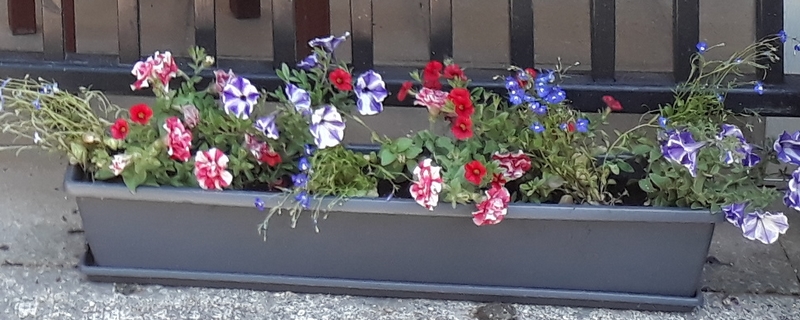Care Home Residents enjoy gardening
Care Home Residents Living With Dementia Respond Well To Gardening Activities
Research shows that engaging with nature benefits the mental as well as physical wellbeing of people of all ages. The immediacy and tactile nature of table-top gardening can provide engagement and sensory stimulation for residents in the later stages of dementia, when verbal communication and deteriorating memory can make it challenging to offer activities.
Table-Top Gardening Activity Sessions – How do they work?
Carefully selected and adapted gardening activities tailored to the individual needs of people living with dementia can be offered in almost any care home setting. I have been running gardening activities at the Rivermere Residential Home since spring 2018 and have worked with residents with and without dementia. Each session aims to provide opportunities for sensory engagement, reminiscence, achievement, conversation and working together as a group.
 Each session lasts an hour and is fully risk assessed.
Each session lasts an hour and is fully risk assessed.- We generally start by examining some seasonal flowers, leaves or berries.
- Practical tasks may include sowing seeds, planting bulbs or seasonal bedding or making collage pictures using cut plant material.
- Sowing and planting is done as a group activity with residents working together on large pots so everyone succeeds according to their capability.
- Even those who participate passively, watching and listening share ‘ownership’ of the resultant flowers.
“It is crucial to adapt some of the gardening activities so that residents can take part without struggling. For example, choosing seeds that are big enough to handle and visible against the dark compost. All plant material is carefully selected to avoid anything prickly or irritative although roses are so lovely and familiar to residents that I take a few stems in after removing the thorns!” says Alison.
What outcomes are we seeing?
The results from working with people living with late stage dementia are always specific to the individual and usually seen in small changes or achievements.
- One resident spontaneously described a rose we were passing round as apricot coloured.
- Another correctly named a Marigold as we were planting them out.
- One frail resident with no verbal communication smiled as soft grass was stroked over their hand.
- A more mobile person went out to water and weed plants with a support worker a few days after we planted them in the group session.
Nina Innes, Well-Being & Activities Coordinator for Rivermere Residential Home, part of Avery Healthcare says:
“Residents who are living with Dementia usually live ‘in the moment’, and Alison’s sessions with our residents are always valued by those that attend them. Her knowledge of gardening in general, but specifically plants – their names, where they grow, and her descriptions of them – is evident, and really bring her sessions to life. She is calm and patient; waiting for the residents to do things themselves rather than doing it for them but giving them the guidance, they need. Alison also caters for different, specific needs, such as sight loss, through exploiting opportunities to utilise the other senses (namely touch and smell).
“From my point of view as Activities Coordinator, Alison is great to work with: she is communicative; keeping in touch with me regularly via email. She is well-prepared; resourcing her sessions herself. She also works well with myself and my team during a session. We are lucky to have such a knowledgeable and organised person working for us, and I hope that we can continue to work together in the seasons to come!”
With thanks to Avery Healthcare

